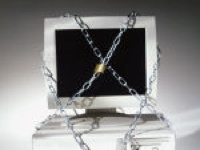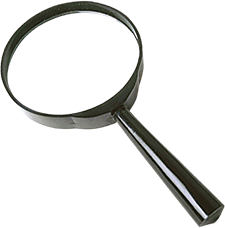
Your computer can be a goldmine of personal information to an identity thief. Here are some ways to help you keep your computer and the personal information it stores safe.
Update your virus protection software regularly; install patches for your operating system and other software programs to protect against intrusions and infections that can lead to the compromise of your computer files or passwords. Ideally, you should set your virus protection software to update automatically. The Windows XP operating system also can be set to check for patches automatically and download them to your computer.
Do not open files sent to you by strangers, click on hyperlinks, or download programs from people or companies you don't know. Be cautious about using file-sharing programs. Opening a file could expose your system to a computer virus or a program known as "spyware," which could capture your passwords or any other information as you type it into your keyboard.
Use a firewall program, especially if you use a high speed Internet connection like cable, DSL or T-1 that leaves your computer connected to the Internet 24 hours a day. The firewall program allows you to stop uninvited access to your computer. Without it, hackers can take over your computer, access the personal information stored on it, or use it to commit other crimes.
If you need to provide your personal or financial information through an organization's website, look for indicators that the site is secure, like a lock icon on the browser's status bar or a URL for a website that begins "https:" (the "s" stands for secure). Unfortunately, no indicator is foolproof; some fraudulent sites have forged security icons.
Try not to store financial information on your laptop unless absolutely necessary. If you do, use what experts call a "strong" password: a combination of letters (upper and lower case), numbers, and symbols. A good way to create a strong password is to think of a memorable phrase and use the first letter of each word as your password, converting some letters into numbers. For example, "I love Felix; he's a good cat," would become 1LFHA6c. Don't use an automatic log-in feature that saves your user name and password, and always log off when you're finished. If your laptop is stolen, it makes it harder for a thief to access your personal information.
Before you dispose of a computer, delete all the personal information it stored. Deleting files using the keyboard or mouse commands or reformatting your hard drive may not be enough because the files may stay on the computer's hard drive, where they may be retrieved easily. Use a "wipe" utility program to overwrite the entire hard drive.
Look for website privacy policies, and read them. They should answer questions about maintaining accuracy, access, security, and control of personal information collected by the site, how the information will be used, and whether it will be provided to third parties. If you don't see a privacy policy, or if you can't understand it, consider doing business elsewhere.
 Print
Print Email
Email







